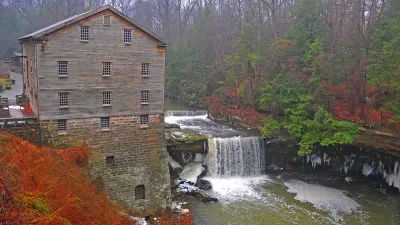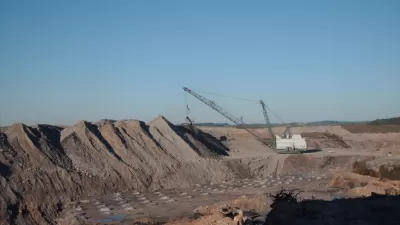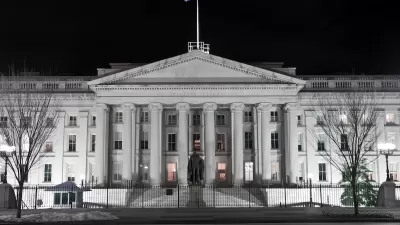Small cities are an asset to the country, so politicians and thinkers on the left and right would do well to stop calling for their inhabitants to flee, Henry Garbar argues in Slate.

Differences in wages and quality of life have people from columnists to President Trump himself asking why people don't just move. "The plight of post-industrial cities like Buffalo, New York, as well as rural communities in Appalachia and the South, is also being dismissed by thinkers on the left and the right," Henry Garbar writes for Slate.
Garbar argues there are good reasons why people are moving less. "This is not as easy as it sounds: Yale law professor, David Schleicher, has laid out three issues that have contributed to Americans’ declining geographic mobility: zoning restrictions that raise housing prices in coastal cities, occupational licensing requirements that make it hard for professionals to cross state lines, and welfare benefits that are difficult to take from place to place," Garbar writes.
How could small cities be saved? Garber points out an idea from Vox's Mathew Yglesias suggesting that moving some government agencies out of D.C. could have a big impact elsewhere, "Time to shift economic activity from the overcrowded coasts to places that need more of it," Yglesias writes. Immigrants and refugees might be motivated to move to these cities. "Michigan Gov. Rick Snyder had earlier discussed getting the Obama administration to offer 50,000 visas for high-skilled migrants to come to Detroit. But Snyder’s plan was dubious—how could you force visa recipients to stay in Detroit?—and the Laitin-Jahr idea was impossible because America hasn’t even accepted one-third that number of Syrian refugees since the war began," Garbar reports.
It's worth the effort though, Garbar contends, not just because small cities serve as a hedge against the troubles larger cities might have in the future, but also because the future prospects of a city can be hard to guess, few predicted New York's comeback in the '80s. What's more, these cities effort distinct advantages. "They’re small enough for regular people to participate in politics and make a mark on civic life; small enough for responsive, local ownership over institutions and infrastructure like banks, broadband, retail, and food production; small enough for short commutes and easy access to nature," Garbar argues.
FULL STORY: In Defense of the Small City

Trump Administration Could Effectively End Housing Voucher Program
Federal officials are eyeing major cuts to the Section 8 program that helps millions of low-income households pay rent.

Planetizen Federal Action Tracker
A weekly monitor of how Trump’s orders and actions are impacting planners and planning in America.

Ken Jennings Launches Transit Web Series
The Jeopardy champ wants you to ride public transit.

Crime Continues to Drop on Philly, San Francisco Transit Systems
SEPTA and BART both saw significant declines in violent crime in the first quarter of 2025.

How South LA Green Spaces Power Community Health and Hope
Green spaces like South L.A. Wetlands Park are helping South Los Angeles residents promote healthy lifestyles, build community, and advocate for improvements that reflect local needs in historically underserved neighborhoods.

Sacramento Plans ‘Quick-Build’ Road Safety Projects
The city wants to accelerate small-scale safety improvements that use low-cost equipment to make an impact at dangerous intersections.
Urban Design for Planners 1: Software Tools
This six-course series explores essential urban design concepts using open source software and equips planners with the tools they need to participate fully in the urban design process.
Planning for Universal Design
Learn the tools for implementing Universal Design in planning regulations.
Heyer Gruel & Associates PA
Ada County Highway District
Institute for Housing and Urban Development Studies (IHS)
City of Grandview
Harvard GSD Executive Education
Toledo-Lucas County Plan Commissions
Salt Lake City
NYU Wagner Graduate School of Public Service





























